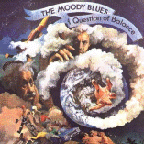- Home
- Introduction, Update Information, Links
- The Super Seventies "Classic 500"
- Readers' Favorite Seventies Albums
- Seventies Single Spotlight
- The Top 100 Seventies Singles
- Favorite Seventies Artists In The News
- Seventies Almanac - Year By Year
- Seventies Singles - Month By Month
- Seventies Albums - Month By Month
- Seventies Daily Music Chronicle
- Seventies Superstars In Their Own Words
- The Super Seventies Archives
- Seventies Trivia Quizzes & Games
- Seventies MIDI Jukebox
- The Super Seventies Bookstore
- The Super Seventies Photo Gallery
- Seventies' Greatest Album Covers
- Popular Seventies Movies & TV
- Seventies Celebrity Portrait Gallery
- Seventies Lyrics Hit Parade
- Top Seventies Artist Music Videos
- Seventies Usenet Music Forums
- Seventies Smiley Calendar
- EXTRA!
- Superseventies.com Facebook Page
- Superseventies.com Reddit Discussions
- The Super Seventies Blog
- Tweet The Seventies
- RockSite InfoBank
- Beatlefan Site
- Thanks For Your Support! / Top Sellers
- Search The Rock Site/ The Web

A Question of Balance
The Moody Blues
Threshold 3
Released: September 1970
Chart Peak: #3
Weeks Charted: 74
Certified Gold: 11/2/70
Recently something of unexaggerable beauty came into my life, something that was to enthrall me musically and elevate me spiritually, to pour oil on the turgid waters of my soul, to diminish my worldly riches by four-odd dollars while increasing my hopes of attaining far greater riches in another world.
That unexaggerably beautiful something was a record album; not just any ordinary record album, mind you, but one offering to my weary ears an abundance of spiritual and other insights and poetry that recalled the best of -- yes, I dare say it -- Gibran, colossal Straussian orchestrations simulated by a mellotron and heavenly choirs comprising seemingly thousands of over-dubbed falsetto voices.
That unexaggerably beautiful artistic achievement, up to and including its very marvelous cover (which was done in gouache, compellingly depicting the confusion that is currently rampant in this topsy-turvy world of ours, and rumored to be scheduled for reproduction on Threshold's forthcoming official lunch-boxes), borders on the divine.
Don't think for a wink that the Moodies compose anything other than very groovy music, music that might at first seem capable of standing on its own despite its melodic and harmonic puerility. That the Moodies never hesitate to add the aforementioned mellotron orchestrations and gigantic multi-voice choruses is simply a testament to their really caring about giving their all.And their heady, thoughtful, eminently poetic lyrics just cannot be topped when it comes to important stuff like the universe and man's plight and so on. They're always real sticklers about giving us all those rhymes (mind/find, free/me, man/understand) that we're fondest of, and, unlike so many of their contemporaries, have the balls to pose the "thousand million questions about hate and death and war" that all of us want answers to.
Me, I can meditate pleasurably for hours on such verses as "Blackbird sitting in a tree observing what's below/ Acorns falling to the ground/ He'll stay and watch them grow," at the end emerging from my meditation a more enlightened, happier human being, one better equipped to confront an often confusing universe.
I am confident that if you give it a chance you, as I, will not in your record cabinet, but be moved to store this album rather within the cardboard shrine that houses your Nam myoho renge kyo scroll.
[ Really, friends, doncha think it's sad that this group -- who, were they to quit regarding themselves as seers, hock their mellotrons, and let Justin Hayward do all the writing and singing, might make some damn fine straightforward rock and roll -- think themselves above making fine straightforward rock and roll? ]
- John Mendelsohn, Rolling Stone, 11/12/70.
Bonus Reviews!
The Moody Blues have once again turned in an album of thinking man's music with some intelligent lyrics and some arrangements that just soar away. It stays firmly on the right side without venturing into the realm of pretension. The album contains a longer version of their single, "Questions" and the whole thing moves smoothly between the acoustic and the heavy sounds.
- Billboard, 1970.
There is little changed in the Moodies formula since their 1967 album Days of Future Passed. The grandiose themes and pomposity were as dated at the start of the Seventies as they are in today's rock market yet curiously a song like Justin Hayward's "Question" bears repeated listening and justly deserves its status as a rock classic.
"Touching up" the sonic picture during remastering has been carried a little too far, resulting in a very boomy overpowering bass and the ever present sizzling of cymbals. Hiss levels are quite high but in no way spoil the remarkable transparency of the sound. The pounding, furious drumming in the closing bars of "Question" can never have been heard with such pummeling exactness.
All the Moody Blues recordings enjoy above average sound quality on CD.
- David Prakel, Rock 'n' Roll on Compact Disc, 1987.
A return to a harder rocking sound in the studio, beginning with the rippling "Question" and including the oft-overlooked "Tortoise and the Hare" (a great rock number in concert), as well as the gorgeous "And the Tide Rushes In." * * *
- Bruce Eder, The All-Music Guide to Rock, 1995.
![]() Reader's Comments
Reader's Comments
No comments so far, be the first to comment .
![]() Main Page
| Readers' Favorites
| The Classic 500
| Other Seventies Discs
| Search The RockSite/The Web
Main Page
| Readers' Favorites
| The Classic 500
| Other Seventies Discs
| Search The RockSite/The Web



